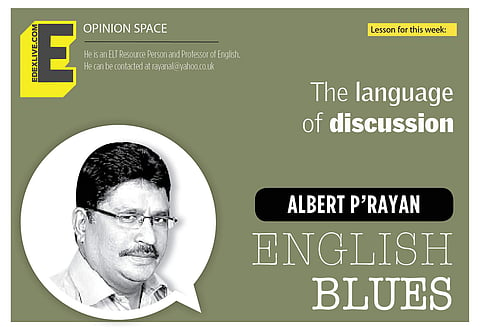

A couple with three kids had some constant misunderstanding between them and quarrelled frequently. So, they approached a family counsellor seeking help. The counsellor, after listening to their problems, thought that the couple had reasonable grounds for divorce. So, he suggested that the couple opt for an amicable divorce. When the issue of who would be the custodian of the kids cropped up, they couldn’t arrive at a solution. The counsellor said, “If you had two kids, one kid could stay with the mother and another with the father. Now, since you have 3 kids, you can’t divide the three children equally. I think you must discuss it and arrive at a practical solution.” The couple went back home and after a long discussion, they arrived at a solution. Later, they contacted the counsellor over the phone and conveyed this message: “We have decided to have one more child and apply for divorce later.” This might be a joke, but the point is that a good discussion can help find a solution to a problem. Almost everyone takes part in a formal or informal discussion. They enjoy discussing various issues, politics, movies, news, plans, etc. Students are trained to take part in group discussions as discussion skills are valued by employers. Top-notch companies recruit candidates based on their ability to discuss issues.
Why are good discussion skills important for everyone? Discussions can be useful in many ways: to arrive at a solution to any problem, to understand any subject deeply, to change our perspectives on certain issues, to expand our knowledge, to clarify our doubts, to develop our critical thinking ability, to improve our clarity of expression, and to develop our language skills. The purpose of discussion is not to impose our ideas on others or force others to accept our views. Leo Szilard, a renowned physicist, says: A scientist’s aim in a discussion with his colleagues is not to persuade, but to clarify.
Active listening is an important skill. As active listeners, good discussants stay attentive when others speak, critically process what is being said and respond positively. They are open-minded and receptive too. They are good at expressing their points of view. They know how to intervene and ask the right questions. Even when they voice disagreement, they do it politely by using apt words and phrases.
How to express your views
I think… /I don’t think…
In my view… /In my opinion…
As far as I know… /As far as I’m concerned…
How to agree and disagree
Exactly.
I couldn’t agree more.
That’s a good point./It makes sense.
How to ask opinions and seek clarification
What do you mean?/What do you think?
Would you like to add anything?
How do you look at it?
How to interrupt politely
I’m sorry, but …
Can/May I add something?
Sorry to interrupt, but…
Raise your words, not voice.
It is rain that grows flowers, not thunder
Rumi
